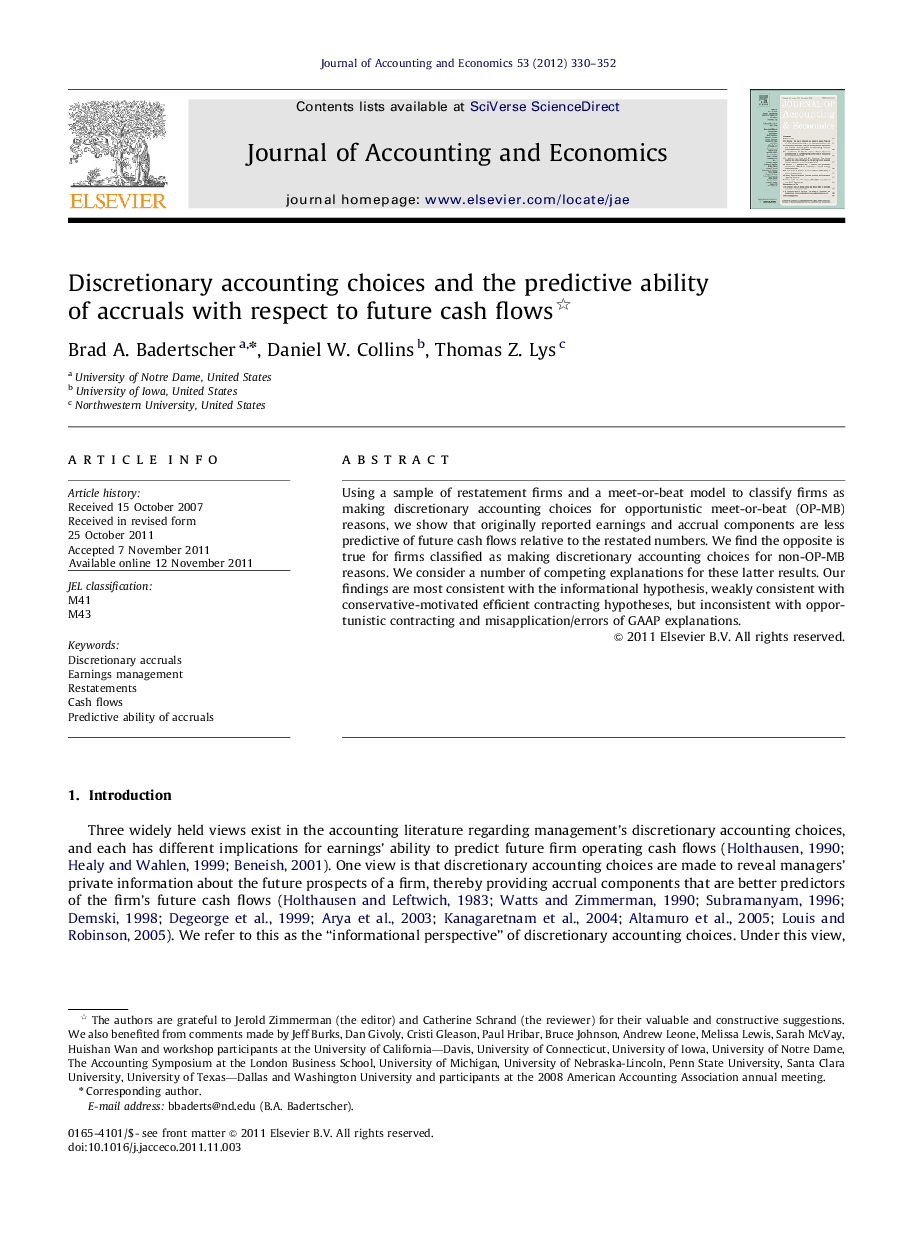| Article ID | Journal | Published Year | Pages | File Type |
|---|---|---|---|---|
| 5086827 | Journal of Accounting and Economics | 2012 | 23 Pages |
Abstract
Using a sample of restatement firms and a meet-or-beat model to classify firms as making discretionary accounting choices for opportunistic meet-or-beat (OP-MB) reasons, we show that originally reported earnings and accrual components are less predictive of future cash flows relative to the restated numbers. We find the opposite is true for firms classified as making discretionary accounting choices for non-OP-MB reasons. We consider a number of competing explanations for these latter results. Our findings are most consistent with the informational hypothesis, weakly consistent with conservative-motivated efficient contracting hypotheses, but inconsistent with opportunistic contracting and misapplication/errors of GAAP explanations.
Related Topics
Social Sciences and Humanities
Business, Management and Accounting
Accounting
Authors
Brad A. Badertscher, Daniel W. Collins, Thomas Z. Lys,
